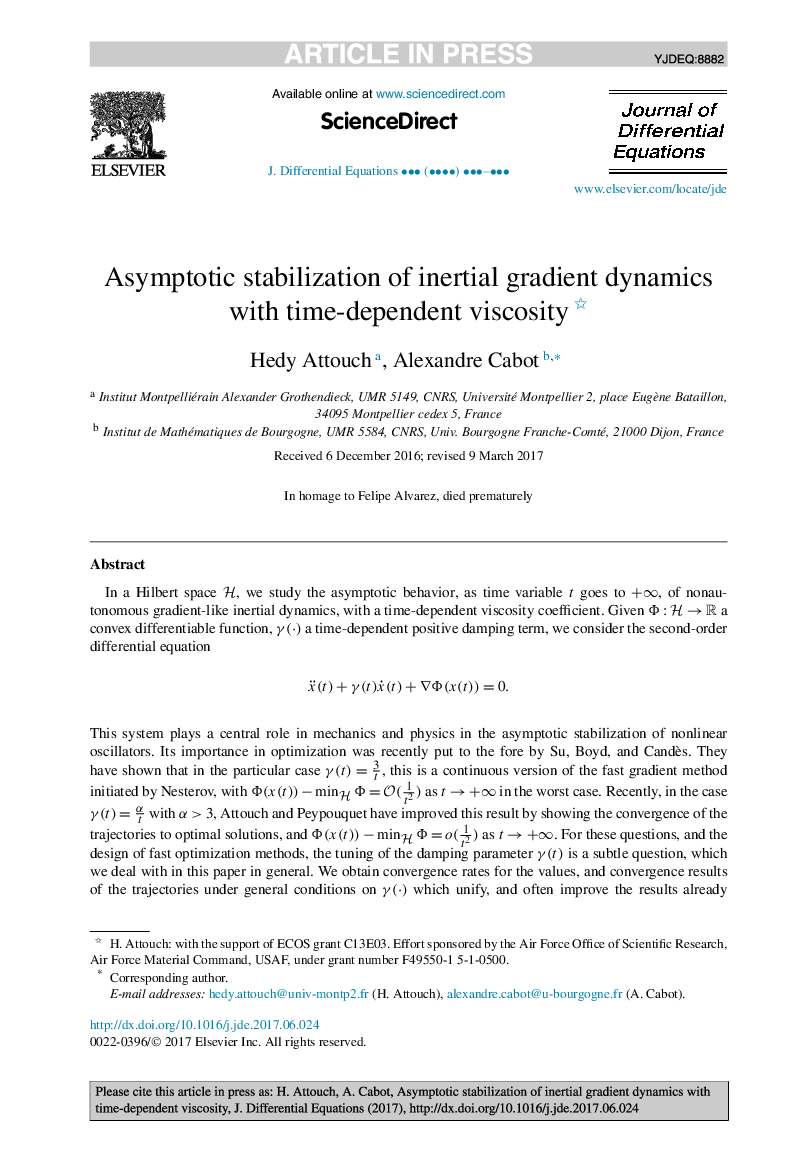| Article ID | Journal | Published Year | Pages | File Type |
|---|---|---|---|---|
| 5773926 | Journal of Differential Equations | 2017 | 47 Pages |
Abstract
In a Hilbert space H, we study the asymptotic behavior, as time variable t goes to +â, of nonautonomous gradient-like inertial dynamics, with a time-dependent viscosity coefficient. Given Φ:HâR a convex differentiable function, γ(â
) a time-dependent positive damping term, we consider the second-order differential equationx¨(t)+γ(t)xË(t)+âΦ(x(t))=0. This system plays a central role in mechanics and physics in the asymptotic stabilization of nonlinear oscillators. Its importance in optimization was recently put to the fore by Su, Boyd, and Candès. They have shown that in the particular case γ(t)=3t, this is a continuous version of the fast gradient method initiated by Nesterov, with Φ(x(t))âminHâ¡Î¦=O(1t2) as tâ+â in the worst case. Recently, in the case γ(t)=αt with α>3, Attouch and Peypouquet have improved this result by showing the convergence of the trajectories to optimal solutions, and Φ(x(t))âminHâ¡Î¦=o(1t2) as tâ+â. For these questions, and the design of fast optimization methods, the tuning of the damping parameter γ(t) is a subtle question, which we deal with in this paper in general. We obtain convergence rates for the values, and convergence results of the trajectories under general conditions on γ(â
) which unify, and often improve the results already present in the literature. We complement these results by showing that they are robust with respect to perturbations.
Keywords
Related Topics
Physical Sciences and Engineering
Mathematics
Analysis
Authors
Hedy Attouch, Alexandre Cabot,
